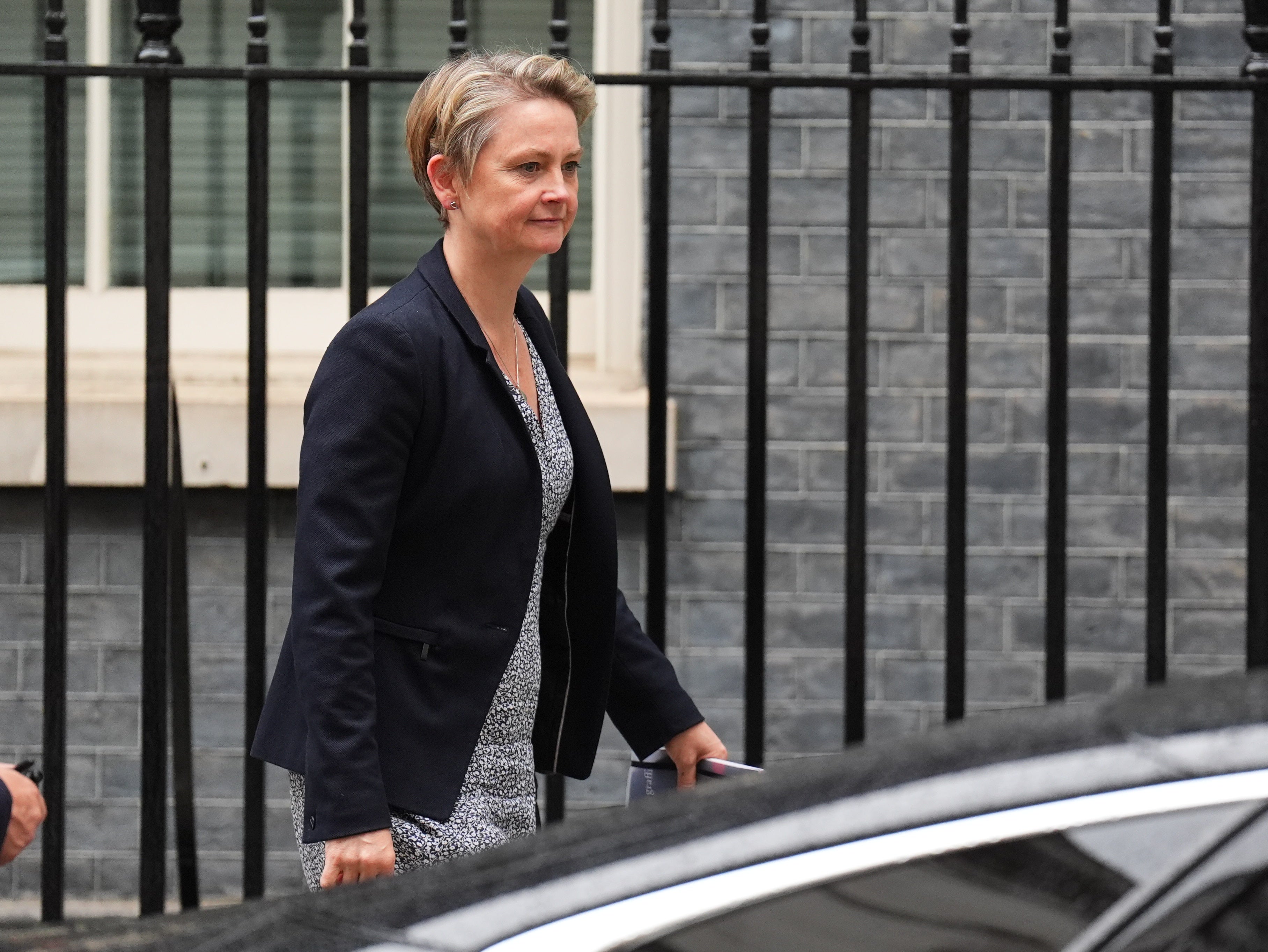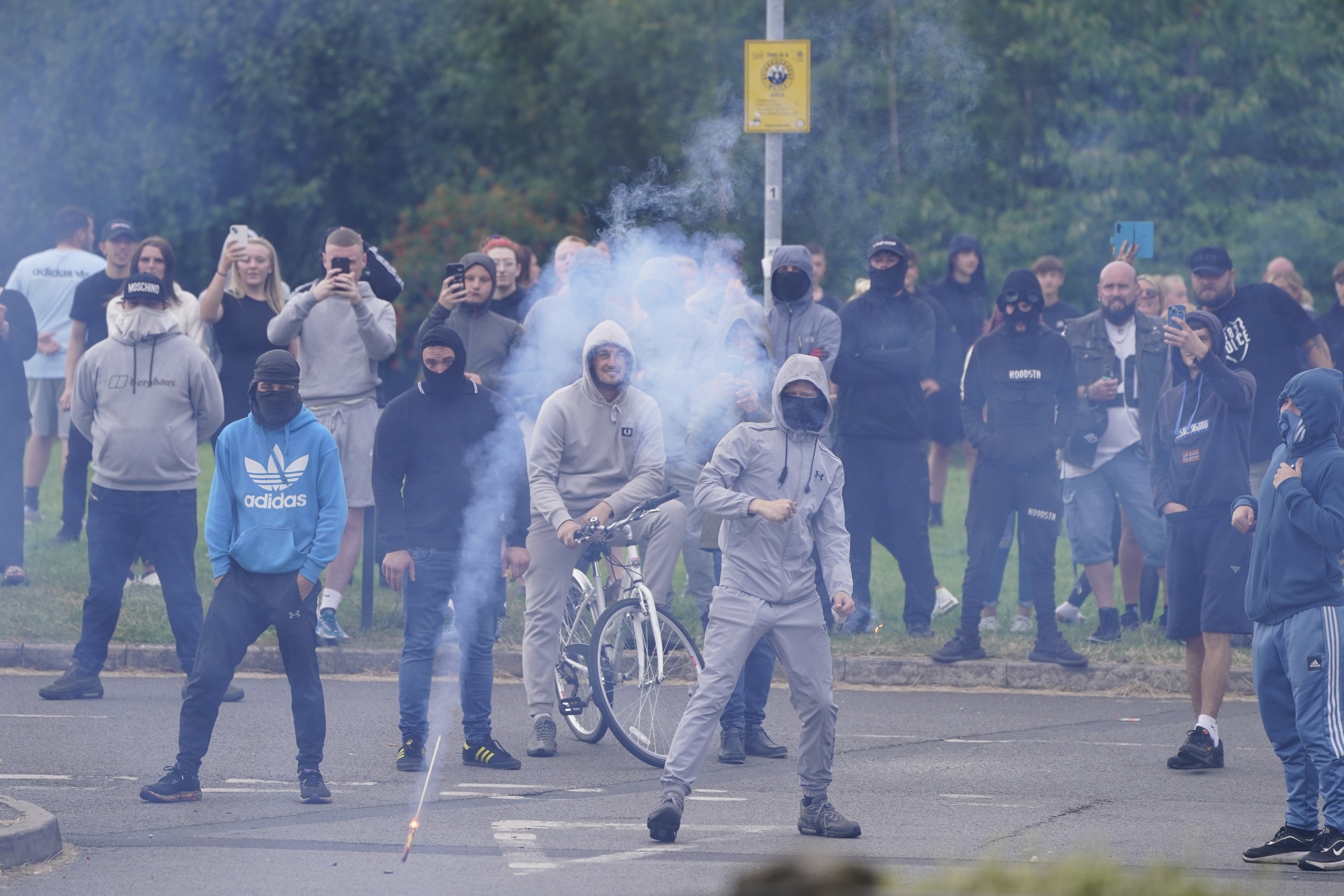Misogyny to be treated as extremism under new government plans to tackle rise in hatred
Home secretary Yvette Cooper orders the review of Britain’s counter-extremism strategy in the wake of unrest fuelled by information online
Your support helps us to tell the story
From reproductive rights to climate change to Big Tech, The Independent is on the ground when the story is developing. Whether it's investigating the financials of Elon Musk's pro-Trump PAC or producing our latest documentary, 'The A Word', which shines a light on the American women fighting for reproductive rights, we know how important it is to parse out the facts from the messaging.
At such a critical moment in US history, we need reporters on the ground. Your donation allows us to keep sending journalists to speak to both sides of the story.
The Independent is trusted by Americans across the entire political spectrum. And unlike many other quality news outlets, we choose not to lock Americans out of our reporting and analysis with paywalls. We believe quality journalism should be available to everyone, paid for by those who can afford it.
Your support makes all the difference.Extreme misogyny will be treated as a form of extremism under new government plans to tackle radicalisation online.
Home Secretary Yvette Cooper has pledged to crack down on people “pushing harmful and hateful beliefs” and to “kickstart” a new approach to fighting extremism.
Ms Cooper has ordered a review of Britain’s counter-extremism strategy under plans to combat the radicalisation of young men online. The analysis will look at hatred towards women as one of the ideologies examined, along with Islamist and far-right beliefs among others.
The project is being carried out to provide analysis and recommendations on how to “tackle the threat posed by extremist ideologies”.

It will inform a new government counter-extremism strategy to respond to growing and changing patterns across the UK.
The government said the scheme will look across the ideological spectrum, and address “gaps in the current system” which leave the country exposed to hateful activity that promotes violence or undermines democracy.
After the riots that broke out across England following the stabbing of three girls in Southport, a total of 460 people had appeared in magistrates’ courts relating to the disorder by the end of Thursday.
At least 72 people under the age of 18 are believed to have been charged.
A number of people have also been handed charges relating to publishing material that contributed to rioting, such as publishing written material to stir up racial hatred or sending a grossly offensive message.
Ms Cooper said: “For too long governments have failed to address the rise in extremism, both online and on our streets, and we’ve seen the number of young people radicalised online grow.
“Hateful incitement of all kinds fractures and frays the very fabric of our communities and our democracy.
“Action against extremism has been badly hollowed out in recent years, just when it should have been needed most.
“That’s why I have directed the Home Office to conduct a rapid analytical sprint on extremism, to map and monitor extremist trends, to understand the evidence about what works to disrupt and divert people away from extremist views, and to identify any gaps in existing policy which need to be addressed to crack down on those pushing harmful and hateful beliefs and violence.
“That work will underpin a new strategic approach to countering extremism from government, working closely with communities to build consensus and impetus for our plans”.

The Home Secretary had criticised the previous government for having no counter-extremism strategy since 2015, and that the lack of a comprehensive approach or practical plans was leaving communities less safe.
The new strategy aims to deliver on the government’s manifesto commitment of preventing people being drawn towards hateful ideologies.
The Home Office says it will look at the rise of both Islamist and far-right extremism in the UK, as well as wider ideological trends, including extreme misogyny or beliefs that fit into broader categories like fixation on violence.
It will also look at the causes and conduct of radicalisation of young people, including the proliferation of dangerous material online.
